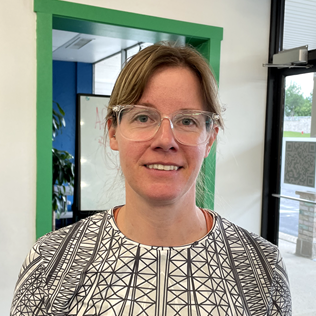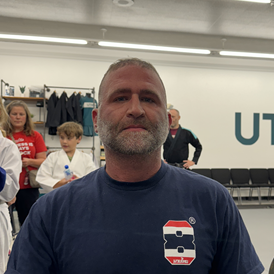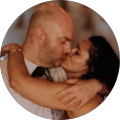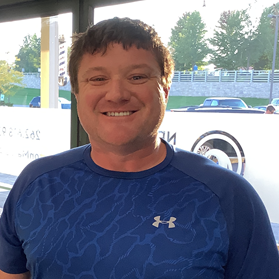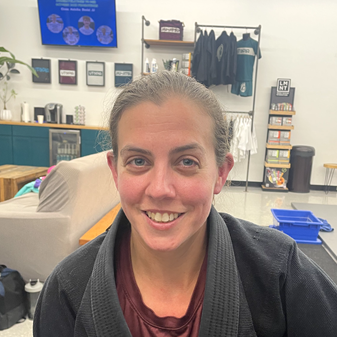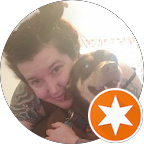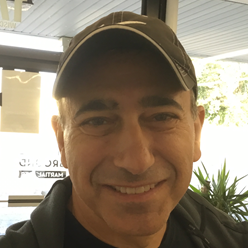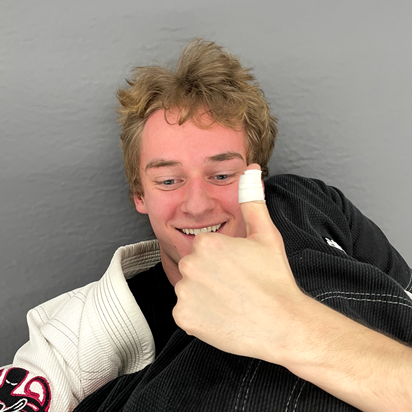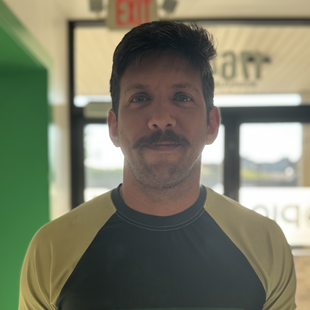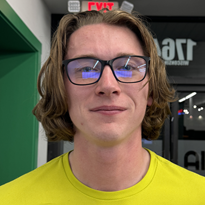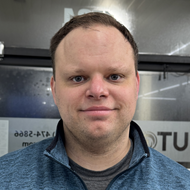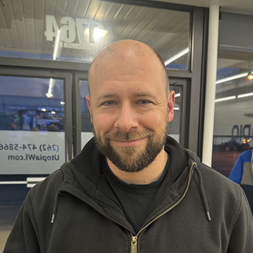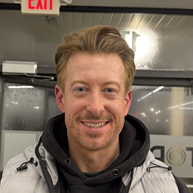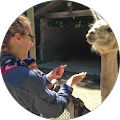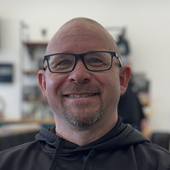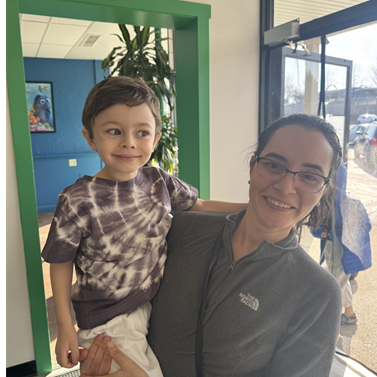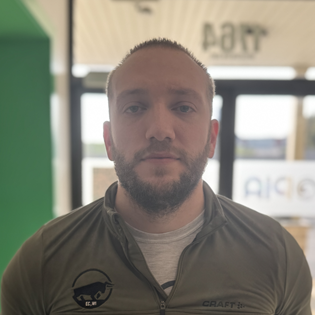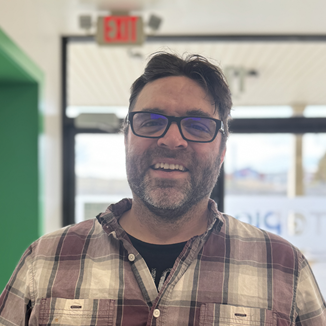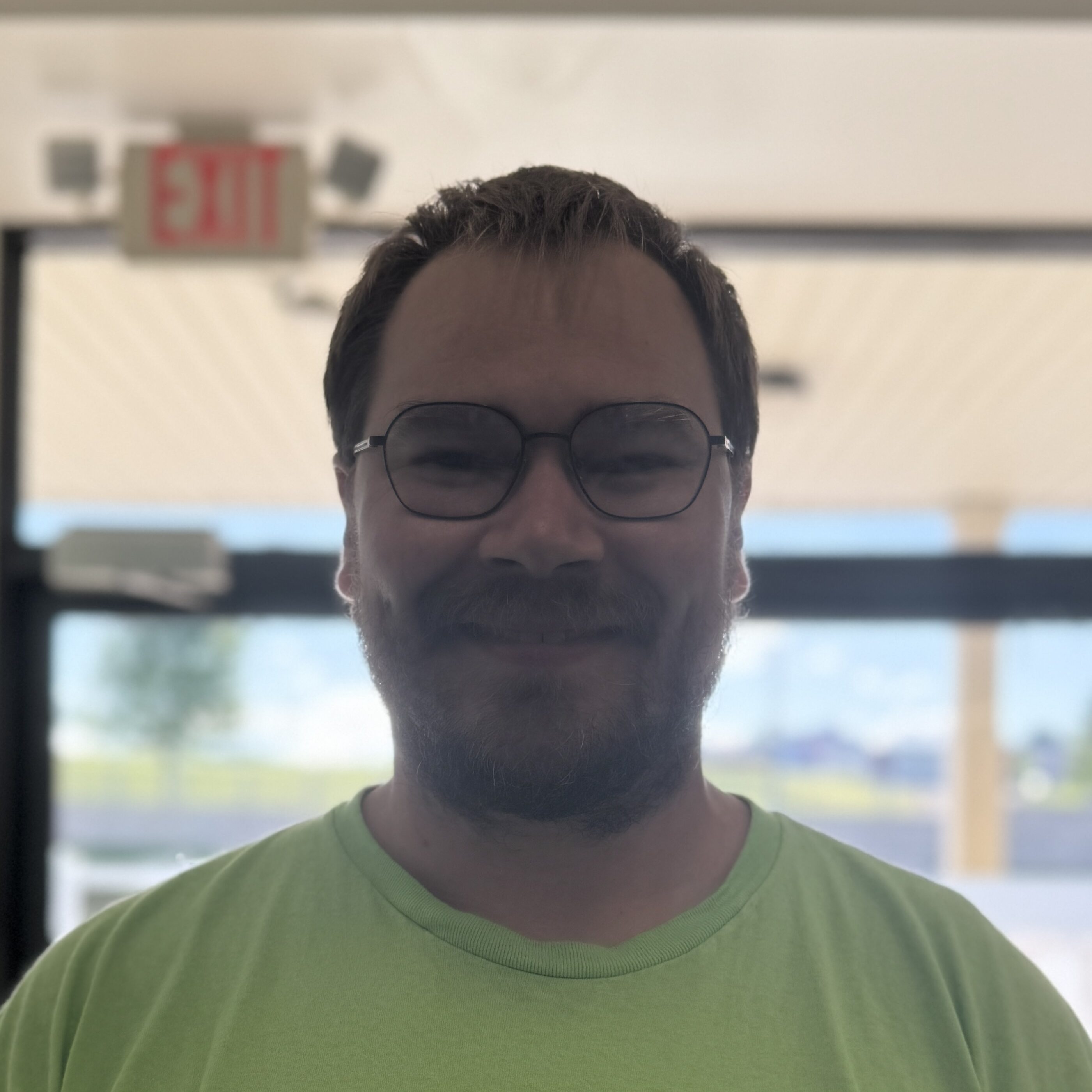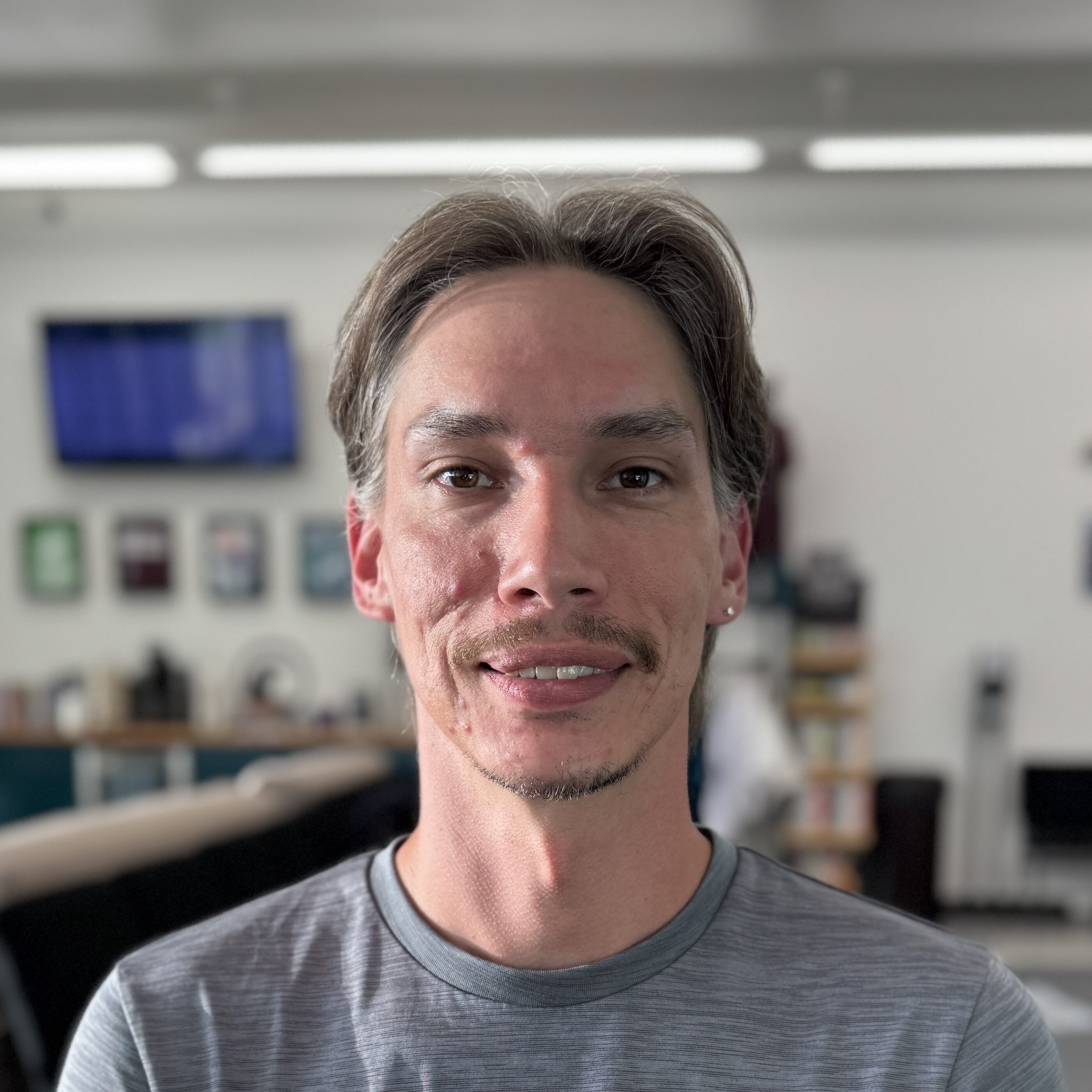In this episode of Inside the Wave, host Perry Wirth speaks with Aaron Rindt, a dedicated jiu-jitsu practitioner and coach at Utopia. Aaron’s journey began as a curious student, drawn to the art of grappling after being captivated by the UFC. What started as an experiment evolved into a life-changing pursuit through Brazilian jiu-jitsu. From those first moments on the mat as a beginner to becoming a mentor for others, Aaron shares the lessons he’s learned along the way.
He discusses the challenges of balancing family, work, and training, offering insights on how to overcome plateaus and stay motivated. His experience as both a student and coach reflects his deep understanding of personal growth, discipline, and the importance of community within martial arts.
Aaron’s role as a coach at Utopia reflects his belief in the power of mentorship and community, values that align closely with Utopia’s mission of personal growth through martial arts. Whether guiding teens through their formative years or helping adults reconnect with discipline, Aaron shows how jiu-jitsu is about more than technique-it’s about transformation.
What You’ll Learn in This Episode
This conversation offers lessons for anyone navigating their own personal journey:
- Life Transitions and Balance: Aaron shares how he manages the demands of family life alongside his martial arts practice.
- Pushing Through Plateaus: Learn about the mental strategies Aaron uses to stay motivated during tough phases in training.
- Mentorship and Coaching Teens: Hear how Aaron approaches teaching the next generation and building trust with his students.
- Building Community and Friendship: Discover why the bonds formed through martial arts often feel like family.
- Jiu-Jitsu Lessons for Life: See how principles learned on the mats help guide everyday decisions and personal growth.
Standout Quotes from Aaron
- “Jiu-jitsu isn’t just something I do-it’s an extension of who I am.”
- “The Utopia community is like a second family-always there to support, challenge, and grow with you.”
- “Coaching teens isn’t just about teaching moves-it’s about meeting them where they are and helping them grow.”
Stream Episode 9 Now
🎧 Available on:
About Utopia
Utopia is a community dedicated to personal growth through martial arts. As a space where individuals of all ages come together to challenge themselves and support one another, Utopia embodies the values of mentorship, discipline, and resilience. The Inside the Wave podcast amplifies these values, sharing stories and lessons that inspire listeners to grow on and off the mats.
Why This Episode Matters
Aaron’s journey exemplifies the challenges and rewards of martial arts. His story highlights the importance of perseverance, mentorship, and community-core values that Utopia promotes every day. Whether you’re just starting your martial arts journey or looking for motivation to stay on track, this episode offers practical takeaways for everyone.
Join the Conversation
Like what you heard? Don’t forget to subscribe, leave a review, and share the episode with your network. Stay connected with Utopia and Inside the Wave for more inspiring stories from thought leaders in the martial arts community.
Transcript
Perry: Welcome to the next episode of Inside the Wave. Today, I’m here with my student and one of our coaches at Utopia, Aaron Rint, longtime jiu-jitsu friend. Welcome to Inside the Wave, man. Yeah, thanks so much. Appreciate you having me on. Yeah. Every once in a while, we bring on experts in different domains. And today, I think Aaron is an expert student and on his path to be an expert coach. We’d love to talk to you about your journey through martial arts, through jiu-jitsu. And when we’re talking like a decade of time, huge changes in life, too. So how did you find jiu-jitsu? What got you interested in grappling other dudes on the floor wearing pajamas?
Aaron: Yeah, great question. For me, thinking back and reflecting on that time, roughly between 10 and 15 years ago now, Uh, UFC is really what got me interested in, you know, at that time or slightly before that it was the whole car scene with Fast and the Furious coming out and, you know, 2002 and then just life interest. And as things evolved with my own life, um, watching the UFC and really getting into mixed martial arts, or at least what I knew and what I thought of mixed martial arts. Um, the more I researched and the more that I looked into it and started to understand the different types of martial arts that made up MMA. Um, jiu-jitsu was really one that piqued my interest. So, you know, starting to research with, you know, the internet back then and finding neutral ground Milwaukee, the internet back then ask Jeeves, right? Yeah. I think Google was probably what I use, but yeah, I remember ask Jeeves. Absolutely. With that though, is. It really started me down this rabbit hole in a good way of wanting to learn more. And it was something different. I did taekwondo with the rec league and grafting growing up. But beyond that, I never had experience in wrestling or any of the other grappling arts.
Perry: It’s because you saw the Taekwondo people get their ass whooped in the UFC.
Aaron: Yeah, exactly. I was like, there has to be a way to defend myself.
Perry: And you picked jiu-jitsu because you just didn’t want to get hit in the face? Yes.
Aaron: Me too. And the cool uniform too.
Perry: Yeah. When was your first class? Do you remember the day?
Aaron: I don’t remember the day. I was just talking to my wife about this, actually. I was trying to scroll back through Facebook to see if there’s any polls. You had to go to MySpace. Facebook wasn’t quite right. I know. I wish I still had my MySpace up and running. Um, but I, I do recall it was sometime in the winter of like 0809. Uh, so headquarters at neutral ground, I signed up for, uh, actually I remember calling and then texting John’s cell phone at that time, getting information. And then the first class actually wasn’t jiu-jitsu. It was combat conditioning that Tyler Welsh ran. Yeah. So John, Tyler, uh, read and some others that, that were around at that time. Uh, they were, they were there and that was my first experience to what would become Brazilian jiu-jitsu.
Perry: What did you, what were your expectations going in and like, what were they met? Were they just different? What did you think?
Aaron: Yeah, I think the expectations were no expectations in a way, as I didn’t really know what to expect. Again, seeing what I saw on TV and just knowing, you know, again, what I saw at that time, I had my perception. But what was the most interesting part of it is what we know now is right, like fundamentals, and just even showing up for for class, if it’s a workout, or if it’s an actual class, Um, what it takes to actually get there in the first place. I think that’s what was most interesting. Uh, looking back now, what stands out to you from your.
Perry: Like first class the first day, anything, anything weird happened. Yeah.
Aaron: I remember like that fight or flight response. Like it wasn’t the environment, but it was like myself and. challenging myself in that way of like, I need to survive here, right? Because what I’ve seen, like, am I gonna get punched in the face? Is somebody gonna try to put me to sleep? So it was trying to explore that in my own way, in almost beating myself in that way of, okay, these are the real expectations. And this is what I thought was the expectation going in.
Perry: What, um, So your first class was combat conditioning. Did you do jiu jitsu that same day, too?
Aaron: No, not the same day. I believe I took a few months with just combat conditioning. I was going through this stage of like wanting to get, you know, healthier, quote unquote, and whatever that was at that time. What did health look like for you when you first started? I, you know, definitely enjoyed.
Perry: I guess just what did health look like for you? Where were you at health wise? And where did you want to get to?
Aaron: Yeah, that’s a great question. Where I was at was, you know, definitely enjoyed food and beverage at the time of life. Chunker? Yeah, yeah, it was definitely for me on the heavier side. You still enjoy food and beverage? Absolutely. Now it’s in moderation and very dialed in, right? But I think with that, knowing that that was probably going to be part of it. And most likely what attracted me to some type of martial art or you know, exercise, that that’s kind of where I honed in on that, that health aspect of it. And now it’s evolved into something where, you know, the physical part of that I don’t, I can’t imagine life without that.
Perry: Yeah. So when did you, when did you actually decide to be like, man, I’ve done enough conditioning, Cause we always tell people nowadays, like, Hey, there’s no, there’s no use to getting in shape before you start jiu-jitsu. Right. Right. Like you might as well just jump right into it. Uh, so you did conditioning for a while and then you took a jiu-jitsu class. Yeah. How was that first jiu-jitsu class? Did you watch it for a while? So you like, you knew what more to expect because I believe it was like after the conditioning class. So you had a chance to observe it a little bit.
Aaron: Yeah. Yeah. So I remember staying around for a little bit, some of the classes and kind of watching and it comes to that point. I still remember to this day. You just said you have to tie your belt. You have to get on the mat and you need to, you know, put your gear on and you need to tie your belt. That’s the first step so you can only watch so much and I remember going to that that internal battle of like off I just see it one more time. I’ll be more comfortable right and moving closer to that time and I just had one more time Yep, I just had to just had to make that make that intentional decision. Cool.
Perry: What what finally pushed you over the edge? So I feel like your story is a lot like Many people’s right because like even me I had Luke kept telling me, Perry, you should come do jiu-jitsu. You should come do jiu-jitsu. I was like, no, wrestling’s better. You should come do jiu-jitsu. You should come do jiu-jitsu. And then finally, like, something in me was like, fine. You’re being annoying. I’ll go. Yeah. Right. Like what, what was it for you that finally pushed you to do it? Right. And I even see like, you know, picture any adult that’s thinking about trying something new that they see the ad, they see the photo, they see the ad, they see the photo, they see the ad, they see the photo. And then finally, after you’ve, they’ve seen it 30 times, they finally decided like, ah, I’ll put my, I’ll put my email in. Right. Yep. What, what was it for you? Were you just like, people just keep talking. telling me I should do it and I’ll fuck it, whatever.
Aaron: Yeah. I think it was two things. From the internal perspective, it was me just challenging myself really like, just do it. You’re just going to keep prolonging this, right? Just do it. The second part, I think, was the environment, right? Being very You know, it was definitely different back then, but I think the environment was always welcoming and certainly allows us to each, you know, take that journey and try to find figure that out for ourselves. Yeah. But I think it was very welcoming in that sense. Right. And everybody was just always awesome. Right. Of like making sure that they’re asking or answering questions that I had or, you know, showing me something if I did. And then it finally just, again, took me that, like, just get on the mat, like that’s the next step for you and challenging myself and holding myself accountable. Yeah.
Perry: Do you wish there was anything different back in the day to help you get started in jiu-jitsu? Yes. Like fundamental classes or videos or whatever it might be because Uh, 2008, like there still really wasn’t like a lot of stuff on jiu-jitsu out on the web, right? If you want to learn jiu-jitsu is still like in a book or maybe a DVD. You wouldn’t just scroll Instagram or Tik TOK and stumble across videos all the time. Right?
Aaron: Right. Yeah. Uh, reading my mind, I think fundamentals, uh, certainly how we have it structured at utopia now. I see that as such an incredible advantage, um, and really setting the foundation, not only fundamentally from technique perspective, but having an environment where. You can learn and there’s a structure to it where you can build, um, at such an early part of your jiu-jitsu journey. I think that’s an amazing opportunity. And, you know, there were bits and pieces of that back then where we had some types of classes where it was, you know, one technique and you, you know, obviously drilled it and that, that whole approach was meant to be. for beginners. Um, but I think the structure of fundamentals now, um, and again, hindsight’s always 2020, right. But, uh, I think something like that, that was in place back then, um, would have been, would have been amazing. Nice. Yeah.
Perry: I feel like at some point in time, actually many points in time, you have like this identity shift from, you know, you went from going to, from, uh, just a person to, Hey, I’m doing conditioning. I’m a person that does conditioning. And you go from a person who’s trying to jiu-jitsu to be like, I’m a jiu-jitsu person. Like jiu-jitsu is part of my identity now. Right. Um, and I feel like I’ve seen a lot of identity changes. for you throughout your life, right? Going from like, you know, where you were to, hey, I’m a father, where you were from starting Jiu Jitsu, like, hey, I’m in it for the long haul, or now I’m a coach and, you know, now it just, it’s part of me. What are some of the key identity kind of changes that you’ve seen throughout your Jiu Jitsu career?
Aaron: I think first and foremost, for me, it’s something we talk about a lot is, you know, for each of us individually, that 1% better every day. You know, without jiu-jitsu and without having almost in a way an accountability partner for myself, jiu-jitsu has become that. So it’s not an activity that I do. It’s not I’m going to jiu-jitsu. It’s not that I’m going to coach a class. It’s an extension of who I am now. Without jiu-jitsu, I would not be who I am today. I would not be, you know, who I am as a professional, not who I am as a husband, as a father, as a son, as a brother. So all that is that common thread that what I’ve learned about myself, how to challenge myself, and also what jiu-jitsu has given me. And now that I try to give back in that same way, it’s really become a part of who I am, not necessarily what I do or what I think about going to do.
Perry: I’m going to ask you a weird question, but I think about this one a lot myself. How much was a membership when you first started? Just random guess. 2008, 2009, like I want to start Jiu Jitsu. How much was a Jiu Jitsu monthly membership back then?
Aaron: I would have to guess probably 50 bucks maybe.
Perry: Yeah, 50, 80 bucks.
Aaron: And then you usually got a gi for free or you had to buy one.
Perry: How did you feel about paying that much for a membership? That’s still way more than a gym where that was like $20 a month, $20, $30 a month.
Aaron: Yeah. It was definitely more, thinking back through that, it was a cost. It was an expense every month. And I think with that, though, there was still something always different, but definitely in the beginning, it was more like a monthly expense.
Perry: Yeah. Now, here’s a real question. Knowing everything Jiu-Jitsu has done for you and how it’s shaped you today, how much would you have paid for a membership?
Aaron: Yeah. Not to be cliche, but I mean, literally priceless, right? Yeah. I don’t know if I could put a monetary figure on it, but I’m not sure there’s a number unless it’s astronomically out of my financial means. But I’m not sure you could put a price or a cost, a true cost on that because of what it’s given me in my life. It’s such a weird thing to think about.
Perry: If I had whatever my budget was back then, if I was smart enough to budget when I was in college, I probably would have taken As much of that budget, I couldn’t spend it on jiu-jitsu, but still have had money left to like eat and have shelter. It’s just wild to think about how many friends and what it’s done for your health and like situations it’s gotten you through, through your life, as you’ve gone.
Aaron: Super cool. Yeah, I love that. The point about even friends and, you know, community and not to be cliche, but I mean, really as a second family, I mean, the amount of time that we all spend together, either at the academy in class or at functions otherwise, I mean, you get to know people through their life experiences together. And whether that’s helping you through that experience, if you’re along them in that same experience together. A lot of the teammates that we have now are either becoming parents for the first time or having kids and stuff like that. So seeing families grow, seeing different milestones professionally if they do move abroad. But having these connections and these lifelong relationships is, I think, just another part of the beauty of what jiu-jitsu has brought for me specifically.
Perry: Yeah. What was one of the first friendships that you got from jiu-jitsu?
Aaron: Yeah, I would say remember, certainly the person sitting across me right now would be you. Uh, what was your first memory of me? Do I not want to know? Yeah. I’m not sure if we want to edit this part out or not. Uh, no, I, I would be thinking through the, the iterations of, you know, what is now utopia. Um, and when we first met, you know, I really, when you and Luke opened riptide in, uh, in, in Grafton at the older, it’s now a form of fitness still. I think just I know you’re a white belt, Luke had just gotten his blue belt. And hearing of you like at the Milwaukee, I think we maybe, you know, rolled a few times at HQ, but not knowing much about you. But then, you know, at that first time, and then certainly Riptide and just being able to certainly see you on your journey from a jiu-jitsu perspective, but then all you’ve done professionally, you know, with family now, um, I think that part just seeing the years and how I combine those into the memories with you and, and, you know, others, um, it’s really amazing. And, and the moments where you all have been there for me, whether you realize it or not. Um, and having, um, uh, you know, community to, to, to lean on like utopia. Uh, I think that’s one of the. The, the most amazing things about the journey.
Perry: Yeah. I, one thing that like, I always get brought back to perspective on this is a lot of times, at least being a coach, you never know what’s going on in someone else’s life. But I love knowing that like jiu-jitsu is there for people. Um, we actually had a kid at our Academy, like literally just lost their dad. And you would not be able to tell from, from that kid’s like attitude in class that they just lost their dad. But it puts into perspective for me that like, jiu-jitsu is there for them. You don’t know what’s going on in someone else’s life, but like they need it. Um, and I think that kind of goes back to like what you’re saying, like there’s always stuff going on and people at the Academy are always there for you and jiu-jitsu is always there for you. Yeah, man, I remember my grandma just passed away once, like the day my grandma passed away, I went to neutral Milwaukee. And I was in the back room changing. And john’s like, Are you okay? And I was like, No, but I just need to do some jiu jitsu today. I was like, my grandma just passed away. He’s like, cool. Yeah, like, we’re here. I was like, man. So powerful. Thinking about that.
Aaron: Yeah. In moments like that, you know, having a place of comfort and almost safety in that way, which is hilarious, because people are trying to kill you, right?
Perry: It’s like you just like, yeah, like, I’m comfortable and safe. But you’re also on my back trying to make me pass out. Yeah, right.
Aaron: Like my arm. Yeah. That’s such a it’s such a weird thing to think about. We’re a place that you can feel, you know, safe, whether that’s true psychological safety, or just where you’re at in that day, or that moment, right going there, knowing right of what your training partners could theoretically do to you. Yeah. But still having the comfort in that.
Perry: And that doesn’t change depending on where you’re at in the jiu-jitsu food chain, right? Like doesn’t when you’re even when I was a newer white belt, like I still felt safe. Right, even though that people would beat me way worse than like nowadays necessarily. And not saying like, I’m amazing at jiu jitsu, but I’ve just, you know, of all the people in the room, I’ve been doing it the longest. So I do have a different level of comfort. While I do jiu jitsu. Yeah, just wild. What, man, what was like one of the biggest plateaus, changes, whatever it might have been in your training. I know you’ve had a lot, like you said, you have a whole herd of children now, right? A lot of things pull you away from jiu-jitsu, whether it’s external things that are making you plateau, maybe you can’t just get to the gym as often, maybe you’re just kind of feeling stuck in jiu-jitsu. Let’s talk about plateaus for a little bit. Which ones stand out in your mind?
Aaron: Yeah, for me, the, the biggest one, uh, certainly the, the longest from a time or a duration perspective, uh, is when I was a blue belt, uh, through those years of like professional requirements and traveling and then, you know, having, uh, our oldest daughter and then eventually our second daughter. And in that window, um, you know, looking back, it was. Something that I had to experience and had to go through and it was never, I knew that I would always come back. It was just when. It was never if, but it’s when. How long were you a blue belt for? I can’t even do the math. I mean, it was seven… Longer than that.
Perry: Eight years. Eight years is a blue belt years.
Aaron: That might be a record. Yeah. So I got in 2000. No, it’s not a record. 11 long time. And then when I came back, I mean, it actually was probably longer than that.
Perry: So eight years is a blue belt. Yeah. How many of those eight years were like you training? Like, Hey, you, you trained for six months, then you took a seven year hiatus and train for another six months and then got your purple belt.
Aaron: Yeah, I would, I would say maybe three to four years were spent training. The rest were different breaks and times that I was out.
Perry: Come back for a little bit, leave for a little bit, man. And a lot of people in the Jiu Jitsu community, you know, it’s like the blue and out, right? You get your blue belt, you disappear. And yeah, you kind of defied those odds and you kept coming back. What, what drove you to keep coming back? What do you think is different between you who came back and all the people that get their blue belt? And then we never see him again.
Aaron: Yeah. You know, for me specifically, kind of what I just alluded to about knowing that I would eventually come back, I just had to, I think ultimately figure out myself in a way, um, and, and who I was in that, you know, part of my life or those different chapters. Um, certainly as a father, uh, you know, where I was at professionally and wanting to explore different things and, um, knowing that not necessarily leaning on Jiu Jitsu as a crutch, that it would always be there for me. Um, but I had to go back in a way. that I felt I was almost giving respect to the martial art, but also knowing that that’s on my growth trajectory. So the way that I can kind of frame it the best is I never felt like I was pushed back to jiu-jitsu. I was always drawn or pulled back to it.
Perry: Yeah, nice. Did you do that by yourself? Or did you have like, friends helping support you? Yeah, even in like the most annoying way like, have you been Aaron?
Aaron: Right? Yeah, right. There’s definitely that, you know, definitely jokingly and not jokingly of like, you know, where the hell are you? Um, which again, I needed that, uh, a huge support. And a part of that is definitely my wife, um, you know, encouraging me and knowing not to necessarily push me, but at the same time, she’s like, get out of the house, right? Get out of the house. Like, please go. Uh, and then I think just family and friends in general and, and. You know, exploring and experiencing those different chapters that I mentioned. Um, having that support structure. Uh, but at the end of the day, I needed to make that decision and going back to that being drawn and pulled back to it. I knew it was the time and, and it was just a matter of me making that intentional decision.
Perry: Why do you think most people, the ones that are higher rank, so blue belt and up that, you know, they’re loving jiu-jitsu, but then they just disappear. Why do you think that happens to most people?
Aaron: Yeah, that’s a, that’s a great question. I mean, certainly, you know, like, is it imposter syndrome? Like, I think part of that is certainly the higher, you know, speaking as a, as a brown belt, um, you know, the higher rank that you go more expectations, there’s a more expert, there’s more expectation, there’s a higher responsibility. Um, so I think part of that. It weighs, you know, it’s a heavy weight on your shoulders, but in a good way, because it’s responsibility driven. And now you’re really thinking about the greater good, where, you know, for me, thinking about Blue Belt, again, it was about me finding myself and about, you know, where I was at. So I think part of that can certainly be imposter syndrome. But absolutely at life events. Some people move and they’re not able to find a gym or they don’t necessarily want to get into a new gym program. So I think there’s a lot of different reasons, but I would say that imposter syndrome, the higher you go in ranks, definitely becomes a part of that with the responsibility weight. Do you battle that today? To a degree.
Perry: Yeah. For me, it being a full, full stack brown belt, like your next rank is black belt, man. You’ve been helping out on a lot of different people’s different black belt tests. Yeah. Being the UK, you’re an instructor. I know a lot of times when people kind of get put in that instructor position that runs through their head. Uh, where’s that, does that happen to you today? Or you just, you just own that shit and be like, yeah, that’s who I am.
Aaron: Yeah. At the end of the day, I, I own it, especially, uh, with being, you know, UK for, for anybody that’s going through the black belt test. and absolutely as a coach, the weight is there, it’s heavy. But in that moment, even if I’m a very small part, especially in the UK side, I’m so responsible to degree and I need to bring my best self for that person and then certainly in class to all my students. That goes for other coaches, that goes for training partners, you know, you as the head honcho at Utopia, making sure that we’re showing up the best that we can be for everybody because I feel like I myself at this, especially at this level, I owe it to utopia, not only because of what you just has given me, but because of the place that utopia is for me at the same time.
Perry: Yeah, man, I, like I said, I feel that exact same thing about it’s like the mission. Yeah. Right. That’s a really good way to put it. We reflect how much Jiu Jitsu has done for us and how much we know how much it’s doing for other people. And all we need to do is show up and teach a class, right? Not every class needs to even be our best class. And you get one of the coolest opportunities, in my opinion, to not just coach adults, but teenagers. Tell me about coaching teenagers. By the way, which is like one of our biggest programs. So we have 40 to 50 teenagers at our academy. Man, and in my opinion, that’s one of the toughest stages of their life, right? Those teenage years, especially nowadays with the whole internet and what they’re exposed to. the changes kids are going through at that time, going through puberty, that all that awkwardness comes out, the defiantness potentially comes out. They’re learning like their brain is legitimately like developing, which leads it to be not functioning. If I function between a kid and an adult, which is really weird. Tell me about coaching teens.
Aaron: Yeah, it’s been a really fun and rewarding journey. Um, you know, having the privilege of, of teaching the teens, uh, my oldest daughter is 13, uh, just turned 13, 13 already. Yeah. She just turned 13 in August. Yeah. So I was talking to Steven, um, coach Steven coach drew about this, um, in at this. kind of stage where, you know, as coach Aaron and then as Aaron, the dad, right. And having this like layered approach of like, no, I am like a coach in this capacity. Right. But still thinking about how I talked to my daughter, Sophia, the 13 year old in, in kind of meeting them where they are in a very intentional way, and to your point, right, about what’s going on in school, you know, how’s everything at home, right? And as much as it is obviously appropriate to ask certain questions, but just being there as a resource for them, not only as Coach Aaron, but however I need to show up for them, you know, as their coach. A lot of students, like one of them, I found out, you know, two weeks into coaching her, I went to grade school with her aunt for like a really long time.
Perry: Our team program is not like a high school sports program. No. It’s like Breakfast Club. Like we get everyone from all like we’ll have the athlete And we’ll have the entire spectrum like, yeah, literally it’s breakfast club.
Aaron: Yeah. All the way to their parent made them go to class at night.
Perry: Exactly. And it’s, man, it, it’s wild. I love that program. It’s super cool.
Aaron: Yeah. And having the opportunity to, to guide into form, you know, such vital years in their development, you know, per the point that you made. Um, that’s part of that added responsibility. Um, and it, you know, three things that, that I say, and I know coach Steve resonates in his Monday 19th class is, you know, number one, it’s always safety, safety first. Number two, uh, is all we ask is to have an open and learning mindset. And number three, have fun. Yeah. Right. Like that age, you need to be having some type of fun. Um, and you need to be. gaining, right, or maturing in a way that works for you. And that’s the, I think, the art of that, right? There’s a science side to it, but there’s also the art side. And that’s really where you need to get to know your students and understand more about who they are as humans while you’re still coaching them through, you know, a jiu-jitsu program.
Perry: Man. Let’s talk about your jiu-jitsu development. Yeah. What are some of your biggest, like, ahas that you’ve had in jiu-jitsu, whether it’s a technique, a concept, a quote you heard at one point in time, whatever it might be.
Aaron: Yeah. I’d say for me, you know, I’m certainly not the most technical. I’m not… You’re very technical.
Perry: You’re not like a strength-based athlete by any means.
Aaron: Let’s be honest. Absolutely, no. Strong and me are not two things that I would commonly associate with, but Yeah, I think for me, this concept or approach of improving every day, at the beginning, it was, as I mentioned earlier, kind of this survival instinct. And really, when you think about it, we’re either going to hurt ourselves more often than not, because we’re not understanding the true intent of Jiu Jitsu, or somebody else is going to hurt us, right? Because we’re not meeting them as a partner. Competition might be a little bit differently, but when we’re truly training, thinking through that, I think as the evolution as I’ve learned more, it, and I try to apply this to a lot of areas in life, but simple really is best. So the more that I can hone in and still remain intentional, making sure that I have intent behind what I’m doing, if that’s learning a new technique, or if that’s, you know, at this stage of my game, I’m really trying to hone in on different details that work for my style.
Perry: That’s huge, because I feel like a lot of people just go into their role to roll, right? And I don’t think there’s any issue with that, right? There’s nights where I go to jiu-jitsu. And it’s like, I just want to do jiu-jitsu. Like, I’m not working on anything specific. I just want to fuck around. But you don’t make as much progress that way, in my opinion. How do you recognize progress in yourself? Right? Yeah. You’re out of stripes. Right? You have one rank left. Yeah. How do you how do you know when you’re progressing? How do you judge that? Because I think that’s one of the biggest reasons why we lose people in jiu jitsu is because people just don’t feel like they’re getting better. Yeah. Right. Yeah, I was just comparing themselves be like, Oh, man, this guy keeps tapping me out. And I can never catch him or whatever it might be.
Aaron: Yeah, that’s, that’s a great question. You know, for me, and this applies to a lot of areas of life. It starts with me, right, that poor inward to be able to pour outward. But it really is about the greater good for me and knowing that the better that I become, the more that I can contribute to everybody else around me. So for me, it’s not necessarily rank. It’s not necessarily, you know, if I was still competing or wanted to compete again, it’s not necessarily winning, but it’s one of my learning or gaining so that I can give that back in return to those around me. Nice.
Perry: So for you, it’s not even. necessarily how you’re rolling. No, you feel like even if you learn one little detail, you’re making progress. I think people forget about that. Yeah. Everyone equates progress being like, I either tap someone, I didn’t tap want someone, right? It’s like, there’s so much more than that there is.
Aaron: I mean, even with just rolling this this past week, and There was a moment where, you know, one of our partners, I won’t say their name, but I caught them in a submission and the beauty in that moment is not me submitting them, obviously, not them tapping. I’m glad they tapped or else, right? Something could have happened. Right, exactly. Um, but what they said after that and what they learned in that moment to not do again, or how they observed the setup and like, Oh, you know what? I should have done X, Y, Z here sooner, right? That’s that moment where the beauty is you just learned that because of submission that I was able to apply or catch you in. Um, so it’s moments like that where I know I’m progressing. Cause again, I’m improving everybody around me while I hope to still be, you know, technically progressing and, you know, obviously adapting my own game. Um, but it really is more of the holistic approach now for me.
Perry: I always say jiu-jitsu is super unique because it is a individual team sport, right? When it comes down to it, everything is on me in my role. However, if I don’t make you better at jiu-jitsu, I don’t get any better at jiu-jitsu because I rely on my training partners to improve, to help me improve. The rising tide raises all ships or whatever they might say. I love that. how has your style changed over the years? You’ve gone through like physical transformations, right? And quite often your physical body will change how you do jiu-jitsu. Like I’ve gone anywhere between like 170 and I think my heaviest has been like 195. And my jiu-jitsu is totally different when I’m that heavy, right? But outside of that, how has your style changed over time?
Aaron: Yeah, I’d say from a style perspective, I’ve never been, you know, when you think about kind of the cliche purple belt where, you know, you explore inverting and, you know, baron bolo and different more advanced, you know, techniques or styles within jiu-jitsu. Style point moves. Yeah, exactly. I never got super into that. I mean, I’ll do it once in a while, but for me, it was always, Continuing and building my own system, right. And chains, like we talk about a lot. So a lot of that is just being aware of the positions that I have a decent amount of submissions from, um, for, for me and my game where I’m at, you know, the older I get to, I’m not as nimble. I’m not as agile. So part of that is also making sure that I’m being mindful of my own physical health so I can physically do jiu-jitsu. But a lot of that for me is just progressing in my own systems and making sure that, again, I’m refining my details and being able to get the intended outcome that I’m striving out for.
Perry: Yeah. Man, that’s awesome. And how is jiu-jitsu Transferred off the mat for you. Yeah, because we metaphorically talk about like Metaphors in jiu-jitsu carrying over to real life, but like what what actual carryover have you seen? Professionally family, whatever it may be.
Aaron: Yeah. Yeah, I think first and foremost you know having Examples like yourself Steve Dan Fuji, right? A lot of the guys and many appalled many others that I’ve known and had the privilege of knowing you all for many years now. Having such examples like you all around me in not only jiu-jitsu, but other aspects of life, whether it’s professionally, family, you know, travel, other hobbies around by role models. Yeah, we’re all role models for each other. That’s that’s really what it comes down to. Right. So being able to first and foremost, you know, we’re a product of our environments. So being able to have role models and, you know, amazing humans by my side, that sets an example in the tone. As I mentioned earlier, without Jiu Jitsu, I would not be who I am today. And that is 100% true. How I show up in my home as a father, as a husband, and even as brother to my brother and my sister. And then as I think about my parents as they get older, Who I am as an individual and all the influence and obviously the the years that they’ve helped shape me respectively In jiu-jitsu being now that thread from when I’ve started To now and I hope to continue that with my own children and in different ways and getting them involved But for me as an individual That has helped me immensely and in more ways than I could possibly put into words professionally. How I even approach my day to day when I log in for work, when I’m thinking about projects, right? It’s a way and it’s a mindset and it truly is a lifestyle, right? Not to be super cliche on that, but it really becomes a part of who you are and it guides us more than we probably think. And I know that’s true for me.
Perry: Yeah. How do you balance all of that? The professional, you’re coaching at the gym one night a week for two hours. You’re training two more nights a week at the gym. You have a bunch of kids, a lot of them are getting into like that kid activity phases where they need to be shuttle around everywhere. You have the wife, you have your siblings, you have your parents, you have a lot of stuff going on. How do you still find time to make it on the maps?
Aaron: Yeah, a huge shout out to my wife, my parents, my in-laws. I mean, to your point about kids activities with school and after school activities and sports, it’s, Um, it’s wild. It really is wild. Uh, I think for me, something that a really good friend of mine, uh, Derek Deprey, uh, who’s an amazing leader, uh, leadership and development coach, um, speaker amongst many other, uh, roles, uh, in one of his, um. engagements that he talked to me about and it’s in his first book called Shift. It’s not necessarily focusing or trying to find balance. It’s about finding harmony and then it’s how we shift from being frustrated or overwhelmed in all these different roles that we’re in to being truly fulfilled. Uh, and that’s something that I’ve really, really honed in on in all aspects of my life. Um, but I need to find that harmony and I need to move to how, how am I most fulfilled in jiu-jitsu has to be a part of that. It is a part of that. And it’s being able to just find, you know, some days it’s going to be this right. Family obviously is always first priority, but it’s finding the ways that we can kind of move in and out of some of these different capacities and finding that harmony at the end of the day. Yeah.
Perry: Do you have any tactics that you use? I know every once in a while, you bring your kid to class. How do you organize all this? Are you a calendar guy? I am. It’s a notebook, you write stuff down sort of a guy? Yeah.
Aaron: Number one, I have a horrible memory, so I have to write things down either to-do list or take screenshots of my calendar at home or whatever my wife’s putting the kid’s stuff in. We have shared notes as well. But yeah, for me, it’s It’s being flexible in the process, but knowing that the expectation or the outcome is the fixed part. So bringing my kids to class if I need to, even if it’s two of them sometimes, right? Make sure their iPads are charged or whatever the case is. just trying to navigate the details can be certainly overwhelming. And just, you know, I think at the end of the day, to giving ourselves grace. Again, I’m not sitting here like I am anywhere near perfect and I have it figured out. It’s just trying to go back to the drawing board sometimes and see what works for us where we’re at as a family at that stage. Right. So that night it is bringing to my kids or hey, you know what, I’m gonna train a different night because I know you wanted to do this. So I’ll stay at home with the kids tonight or whatever the case is.
Perry: Do you have any like staple routines that you do to help you stay on track? And I’ll give you an example. Like, this morning, I was talking to Aletha, my wife, and she’s like, I think I’m gonna make a video on like, what I do on Sundays to get ready for the week. She does like, you know, have a list of things that she likes to do on Sundays to knock out for the week. So she’s ready to hit the ground running on Monday. What do you have any routines that you like anchor by?
Aaron: Yeah. Uh, let’s see. My morning routine is pretty tell me.
Perry: Yeah. Yeah. It’s, it’s pretty nice matcha tea. Do you have a matcha?
Aaron: Is it? Yeah. I’ll I’ll alternate matcha and then coffee. How do you make your coffee? You probably are a nerd.
Perry: So you work at Stone Creek for a while. Yeah. V 60.
Aaron: Yeah. And then we have a mocha master or whatever that brand of a super nice drip or blooms and everything. So it’s either coffee and or matcha, depending on the day. My wife drinks coffee, so I’ll usually start it. Sometimes she will start it as well if it’s the Mocha Master, but it’s usually V60 if it’s just for me. But yeah, within that routine, having that time to reflect, to usually update my to-do list or calendar items. And then what I often do is make the same exact thing every morning, given we have the ingredients, which most of the time we do. But having that structure and that consistency. What do you make every morning? So it’s four fried eggs with coconut oil.
Perry: Got to get that choline in. Yep.
Aaron: Cool. Salt, pepper, and then an avocado, whole avocado.
Perry: Nice. You know what I’ve been throwing? I actually had that this morning for breakfast. Did you? Three eggs, avocado, man, cottage cheese. Really?
Aaron: For protein or what? Yeah, but the expensive shit. Like the Good Life? The Good Life cultured cottage cheese. That stuff is like $7 for a small tub, isn’t it? $4.95 at Cendex.
Perry: Really? But man, it’s so good. I feel like I’m getting the probiotics too. Yeah. I put my eggs on top and that’s my jam.
Aaron: Yeah. I think one thing, I have wicked ADHD. So the more it’s that balance of like structure and routine, but also being, you know, free to be impulsive a little bit sometimes. But for me, it’s one less decision to make a day where I can then put my my brain power, my focus, the limited focus that I sometimes have to other things, which, you know, during the week is usually first meeting or whatever I’m going through in that day professionally. And it’s certainly as the kids get out the door, you know, whoever’s taking them to school that morning, man, have you heard of spoon theory before?
Perry: I don’t think I have. You start the day with a specific amount of spoons. Everyone has different amounts of spoons. And every time you make a decision, you give one of your spoons away. So the less decisions you make throughout the day, you save spoons for later on. I don’t know if it’s real, but it’s something I heard before. And I actually really like that concept. I do. To the fact that I think that’s why I am so type A with what I eat. I’m just eating the same thing all the time. So that’s either my breakfast. Or I have like pre-made little smoothie bowls that I just make all on Sunday just so I throw them in the blender and there’s one less decision I need to make that day. I was even thinking this morning, like, man, I really wish I could just pull the whole, like Mark Zuckerberg or, you know, Jeff Baze, like XYZ. CEO billionaire that just wears the same thing every day, like that would 1000% be me. It actually almost is me. Yeah. Yeah. And so my wife’s like, you can’t wear the same thing out every weekend for three weeks straight. It was so good. And you’ll relate to me on this one. We just did like our, uh, our fall family photo. Right. And I told Aletha, I was like, Hey, you need to look at our photo last year and tell me what I wore because I guarantee I’m going to pick out the same thing again this year. If the decision’s left to me and sure as shit, I pulled out the same flannel and she’s like, you’re not wearing that you wore that last year. I was like, it’s my go-to. It’s like the same thing when I go to a restaurant where, have you ever been in a restaurant where you look at the menu, you’re like, man, I don’t know what I, we were just talking about this at Jose’s Boots and Barrel, right? It’s like, I don’t know what I ordered last time, but this looks good. So I bet this is what I ordered last time. And sure as shit, like that is what I ordered last time. Yeah, from Creatures of Habit, right? But it’s to save decision-making. It’s like, it’s good.
Aaron: Yeah. Wasn’t there a, a family that did like holiday pictures, like every single year, or no, it was a teacher. He had the same outfit on for every single like yearbook picture. That’s amazing. Tie, shirt, everything. And like every year until he retired, it was the same outfit every single year for like decades.
Perry: That’s amazing. Yeah. I would 1000% be me. 1000% be me. Uh, man. What was your toughest day at Jiu Jitsu ever? It’s the last big question. And maybe they’re like all par for the course, but have you ever had a class where you’re just like, fuck this?
Aaron: I don’t know if it was necessarily like, fuck this or like, God, I really don’t want to go or man, I got my ass kicked tonight. Right. Nothing like that for me. I think the toughest class. was coming back from the last mini break as Blue when I came back in 21, right after COVID. You’re going to be like, man, I’m going to be so out of shape.
Perry: Yeah, yeah. I forgot everything.
Aaron: Yeah, it was right before I got my Purple Belt, coming back in 21. And that class, I think with everything going on in the world, obviously, at that time, The COVIDs? Yeah, COVID and just mentally, emotionally being exhausted from a lot of things that included that, certainly.
Perry: Was this also when you weighed 130 pounds?
Aaron: I was a little bit heavier then. I say heavier. It was not definitely my lightest. I was, I think, 20, 15 or 20, 16 when I was like 160, 165. Yeah. That was an interesting- I thought you were going to blow away. Yeah, that was an interesting part of my health journey. Um, but yeah, I think that I specifically remember coming back in that class and just, you know, seeing not only different, different faces for training partners and different people, part of the Academy.
Perry: Yeah. Like I don’t know my people anymore.
Aaron: Yeah. Like the, I mean, the core group was mostly there, but just all these new faces. And then I think just. Again, going back to where I, what I mentioned earlier about being drawn back into it, it was the right time for me to come back. And I just, I had to kind of accept that, um, with again, everything that had happened with COVID and everything else, this, this mental transformation that I had to experience. And that was difficult for me. Um, I think for a number of reasons, but I, I vividly remember that class coming back and then, you know, knowing my path and my journey forward, um, what that could potentially look like. And I think that was just getting back into it for me. Cool.
Perry: Yeah. All right, man. We’re going to wrap this up with a 10 rapid fire questions. All right. Are you ready? Yes, sir.
Aaron: Gi or no gi? Gi mainly. I do miss training no gi because I think it positively forces me to certainly move and think differently. So I want to do more no gi, but I train and prefer gi right now. Nice. What’s your current focus in your jiu jitsu game? For me, it’s to continue to advance, I think for me personally as a practitioner, for me to advance in my systems and chains as I build. Get more depth. Yeah, more depth and again, getting those details and as a coach, becoming a better coach every day for my students.
Perry: Nice. What’s the one skill you think you need to build to be a better coach?
Aaron: I would say further understanding, learning, and applying the learning styles. Oh, learning styles, cool. Yeah. Favorite submission? I would say a series from Topside Control right now is the Kimura to Tarika Plata, and then Tarika Plata variations. That’s what I hit most of the time.
Perry: Nice. If you could train with any jiu-jitsu practitioner in the world, dead or alive, who would it be?
Aaron: Hadra Gracie. Why? Uh, his just so you get X choked by him. Exactly. His key game. And I think what he has done for jiu-jitsu, uh, Gracie name aside, um, as a practitioner and his insanely technical game, uh, something that I really admire the fundamentals. I think it’s so basic, but it’s like, yeah, when you hear him talk about why he hits things, it’s because he does the fundamentals so damn well, because I want to do it.
Perry: Yeah. That’s cool. Uh, best piece of advice you’ve ever received for beginners.
Aaron: Uh, for beginners, I would say show up, uh, don’t be afraid to ask questions and, uh, truly fundamentals, fundamentals, fundamentals. Nice.
Perry: Uh, one word to describe your jiu-jitsu style.
Aaron: Just ask some of our training partners, uh, how they would describe, uh, kind of concentrated different answers, but I would, to sum it up, uh, in how I think about my jiu-jitsu would be intentional.
Perry: I like it. What’s the hardest aspect of Jiu-Jitsu to master?
Aaron: I think this goes for all belts and all parts of the journey, but certainly in the beginning, not necessarily understanding the journey and the runway, but there is no end. There is no finish line. We’re always improving. We’re always becoming a different version of ourselves.
Perry: What habit has significantly improved your Jiu-Jitsu?
Aaron: I would say nutrition early on and being able to have that self-control and structure that has aided in me being able to improve my jiu-jitsu amongst many other things.
Perry: Nice. What’s your number one nutrition tip you would give to people? It’s off list.
Aaron: Yeah, I would say, you know, If I were to give advice, because it’s a very personal journey. Yeah. Find what works for you. Learn to give yourself grace, be flexible and adaptable. But again, keep that goal in mind, right? If you want to, you know, lose five pounds or whatever your individual goal is, make sure you’re being true to yourself and not necessarily what other people are telling you to do or what you’re finding. It needs to be a personal journey.
Perry: I shouldn’t just randomly do five day fast. No, no. You saw it on Instagram.
Aaron: Right. You should really figure out what works best for you and run with it. It really is trial and error at the same time.
Perry: What’s a habit that’s significantly improved your life outside of Jiu Jitsu?
Aaron: I think mindfulness, being present in the moment and really being able to enjoy what’s happening and not always thinking about what comes next. How do you practice mindfulness? For me, it’s a little bit of meditation. I’d say structured meditation. Do you just like sit there in silence? I do, yeah. Or if I’m listening to EDM. Just raw dog it? Yeah, just, or BD with the EDM music on my headphones.
Perry: Do you like a guided meditation or anything like that? I’m a huge into guided meditation.
Aaron: Yeah, nothing truly guided, like structured. It’s more just at my own pace. But for me, it’s checking in with myself and making sure that I’m, I’m telling myself to be present. And that a lot of that comes for me specifically, through gratefulness, and being able to have that mindset of like, I get to not that I have to. So it’s constantly going back to that in like a full cycle perspective.
Perry: Yeah, that’s one thing I tell myself a lot. When I have to do something, you have to do something right. You’re from like, I have to to, I get to, and then my last, my favorite one, and this is one that I got from one of my mentors, you have a golden opportunity to. It’s like, man, I have to go teach tonight. No, it’s no, I get to teach. It’s not even that, it’s like, I have the opportunity to teach tonight, which is amazing. Favorite book or resource that has influenced your mindset? Oh, Playboy.
Aaron: Uh, I mentioned, uh, in one of my responses, my, my good friend, yeah, Derek, uh, debris, um, shift, uh, going from frustrated to fulfilled. It’s an amazing book. Uh, and he has a new one actually coming out this coming up week that I had the privilege of advanced reading. Uh, it’s everyday leader. Um, it, it really prompts. The mindset of you don’t necessarily need to have a title, right? If you’re not, you know, CEO or a senior vice president. from a professional capacity, it does not matter. It’s about your everyday actions. And it’s about being intentional with how you want to lead others and certainly how they identify you as a leader at the same time.
Perry: So that’s the one that I’m really, really love that concept. Yeah. And that’s something that we teach the kids at super side note, something that we tell our kids at the Academy, it’s like, Every single one of you is going to be a leader, like someone is going to look up to you at some point in time. And it’s important to understand that everyone’s got someone that looks up to them. Might be one person that might be 100 people. Yeah, but it’s important to understand that. Yeah, it’s fantastic perspective. Any final words for our audience? Do jiu jitsu.
Aaron: Yeah, do jiu jitsu with us. Yeah, with with utopia. Amazing crew. No, I think seriously, you know, just going back to the the the concept or the thought of jiu jitsu, whatever it is in life that you know, you’re able to find that that certainly starts as a passion, maybe evolves into a passion. Maybe you fall out of it for a while and come back to it. Whatever that is, find that for yourself, right? You’ll be amazed at the more you’re able to challenge yourself in a positive way and being able to utilize that mechanism. And for me, that’s Brazilian Jiu Jitsu. I am forever grateful that I found Jiu Jitsu and that I’ve been able to have the community and you know, the life experiences with everybody involved because of who I am today.
Perry: Man, I love it. And I’m grateful for you as a teammate, as a friend, as a coach, as part of our staff at Utopia. I love being on this path with you and I hope it goes until we’re old dudes with canes.
Aaron: Cane fighting instead of doing Jiu Jitsu. Right, yeah. And I think I speak for everybody at Utopia. Without you, we would not be on this journey currently. So thank you to you for your mentorship, your coaching, and the friend that you’ve been through the years. So we have you to thank for that.
Perry: All right, man. Well, I appreciate you coming on the podcast, sharing what your path and your journey has been like. Uh, if you guys are listening to this, give us a five stars, a thumbs up, whatever your podcast app lets you do and join us on the next episode and subscribe. Very cool. Thanks for coming on.
Aaron: Thank you.




















